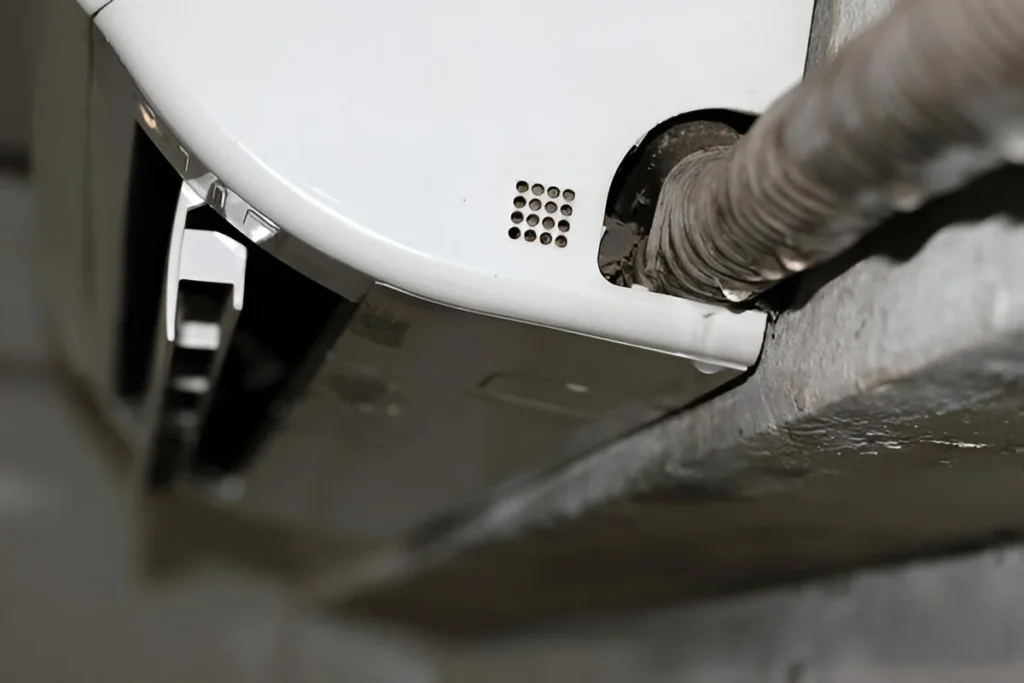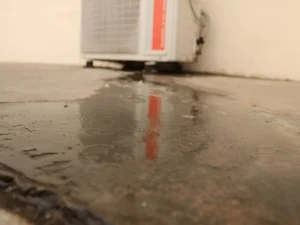
By Admin
AC Maintenance Tips to Avoid Water Leakage Issues Effectively. Learn how simple routine checks can extend your AC’s life. Trusted insights from experts.
Air conditioners are essential in hot and humid climates like Kolkata, offering relief from soaring temperatures. But nothing disrupts that comfort like a leaking air conditioner. Water leakage is one of the most common AC issues homeowners face, and often, it’s preventable.
This guide provides expert-level AC Maintenance Tips to help you avoid water leakage issues, based on industry experience and trusted practices. Whether you’re a homeowner, tenant, or facility manager, these insights can help you prolong the life of your air conditioner and avoid costly repairs.

Water leakage from your air conditioner may appear harmless at first, but it can quickly cause water damage, mold growth, and system failure. Understanding the root causes can help prevent it.
Clogged drain pipe: Dirt and debris can block the condensate drain line, causing water to back up.
Dirty air filter: A clogged air filter can freeze the evaporator coils, and when they melt, the water may overflow.
Low refrigerant levels: This reduces pressure in the system, which can lead to frozen coils.
Broken or rusted drain pan: If the drain pan is damaged, it can’t collect water efficiently.
Improper installation: A tilted AC or loose fittings can misdirect water flow.
Now that you understand why it happens, let’s explore how to prevent it.
Prevention is always better—and cheaper—than a cure. Implementing the right AC maintenance tips ensures your system runs smoothly and efficiently without any leakage.
Dirty filters reduce airflow, which may cause your evaporator coils to freeze and eventually leak water.
Clean filters every 15–30 days during high usage seasons.
Replace filters every 2–3 months for optimal performance.
The drain line removes moisture from the unit. Over time, algae, mold, or debris can clog it.
Flush the line with a mix of water and vinegar every 2–3 months.
Use a wet/dry vacuum to clear blockages when necessary.
An improperly installed indoor unit may lead to inefficient drainage.
Ensure the rear of the indoor unit is slightly lower than the front.
Avoid DIY installation; always consult professionals for adjustments.
Low refrigerant causes coil freezing, which results in water leaks once it melts.
Schedule an annual AC inspection to check refrigerant pressure.
Never refill refrigerant without identifying the root cause of leakage.
Dirt on coils reduces their ability to absorb heat, potentially leading to freezing.
Use a soft brush or mild detergent to clean the coils.
If coils are inaccessible, let a technician handle the task.
An old or rusted drain pan won’t hold water efficiently, causing leaks.
Shine a flashlight to check for cracks.
Replace the pan if damaged, especially in older AC units.
Even with all the DIY care in the world, there are things only a technician can spot. Regular check-ups ensure your AC remains efficient and leak-free.
Professionals not only clean and inspect all internal components but also:
Detect early signs of rust, mold, or system inefficiencies.
Use tools like pressure gauges and vacuum pumps for accurate diagnostics.
Offer performance recommendations based on your specific usage.
Looking for the Best AC repair services in Kolkata? A trusted local provider with years of expertise can make a huge difference in ensuring leak-free, long-lasting performance.
Technology is reshaping how we maintain and manage air conditioners. Here are a few trending practices to keep your system modern and leak-free:
Smart ACs now offer real-time monitoring of humidity levels, water leakage alerts, and maintenance reminders via mobile apps.
Eco-conscious homeowners are switching to biodegradable coil cleaners and filters to reduce environmental impact.
Some modern service providers offer AI-driven predictive maintenance, flagging potential issues—like leakage—before they occur.
When implemented consistently, the right AC practices offer both short-term and long-term benefits:
Prevent water damage to walls, floors, and furniture
Improve indoor air quality
Extend the life of your AC unit
Reduce electricity bills by ensuring optimal performance
Avoid unexpected service interruptions during hot weather

Q1: Why is my air conditioner leaking water indoors?
This is usually caused by a clogged drain pipe, dirty filters, or low refrigerant levels. Regular maintenance can prevent this.
Q2: How often should I get my AC professionally serviced?
At least once a year, ideally before the summer starts. For high-usage households, servicing twice a year is advisable.
Q3: Can I fix AC water leakage myself?
Minor blockages in the drain line can be cleared at home. However, refrigerant issues or coil problems should be handled by experts.
Q4: Are water leaks dangerous for my AC system?
Yes. Persistent leaks can lead to rust, electrical damage, and mold growth, affecting the system and your health.
Q5: What type of AC is least likely to leak water?
Modern inverter split ACs with built-in drainage and smart sensors are less prone to leakage, especially when maintained properly.
Water leakage might seem like a small issue, but if left unchecked, it can lead to expensive repairs and health risks. The good news? It’s entirely preventable.
By following the AC maintenance tips shared above and scheduling routine check-ups, you ensure not only the longevity of your air conditioner but also the comfort and safety of your home.
Whether you’re managing a single-room AC or a centralized system, one consistent habit can make all the difference—regular, smart maintenance.
If you live in a city like Kolkata, where humidity levels are high and AC usage is frequent, staying proactive about your unit’s health is non-negotiable. Choose your service partner wisely, based on trust, reliability, and expertise.